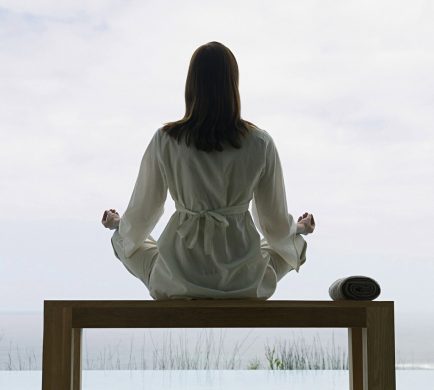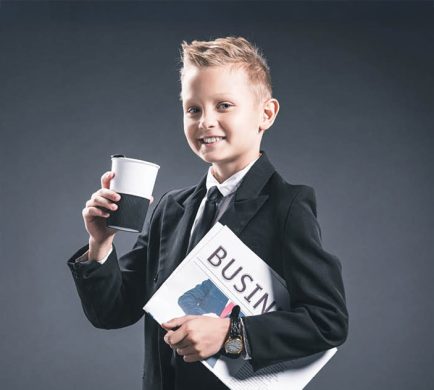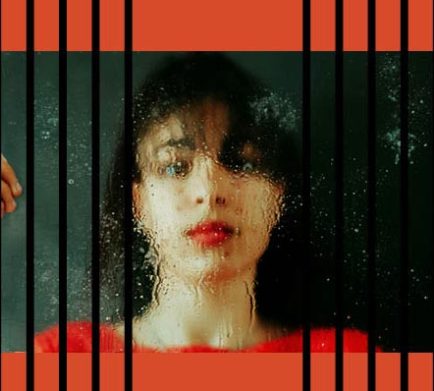By Angela Dunning
Learning to parent yourself and your inner child can be impossible if you did not receive a template from your own mother or primary caregiver as an infant. This deficit can leave long-lasting and very deep wounds in an adult, rendering them almost incapable of taking care of and valuing themselves, let alone loving themselves.
The un-mothered/parented child-adult constantly looks to others to support and nurture them, sometimes even into late adulthood if this wound is left unhealed. While at the same time often neglecting their most basic needs and desires and making authentic living almost impossible.
One of the ways people CAN learn to parent themselves, and in so doing, eventually come to a place where they feel genuine compassion, tenderness, and love for themselves, is through taking care of a pet. Small animals, in particular like cats and dogs, can play an invaluable role in this most vital area of healing and development in a deeply wounded person, such as those with early Childhood Developmental Trauma.
Small animals, in particular, can represent at a very deep unconscious level the needs of the inner child, often so neglected by the adult-self who has learned inattentive patterns from their parent/s. Adopting a cat or small dog or another small mammal (rather than reptiles or birds) can take a developmentally challenged adult on a huge journey of learning to care for another small and vulnerable being who is wholly dependent on them.
It’s important, however, that this isn’t happening on an unconscious level. It has to be a conscious process involving awareness and a desire to grow. I see many people who infantilize their pets, treating them like babies or children without any awareness that they are doing this through projecting their own inner-child onto the animal so that the animal carries this like a burden. This is counter-productive and doesn’t facilitate growth as it keeps the animal in a constricted lifestyle and the person disconnected from their own inner child and true needs that are still needing attention and love.
One of the ways we can become aware of our attitude towards ourselves and our pets is through watching our dreams, as often our pets will appear in them because they are a big part of our daily life. If we are paying attention to how we are caring for them, then they will tend to change in our dreams, showing signs of development, strength, and confidence perhaps. Jungian author and analyst Marion Woodman talk about how often people who are utterly disconnected from the needs and deprivations of their own inner child have dreams of neglected small animals or birds kept locked in an attic, who they have forgotten about and don’t know yet how to care for them.
So if we take on a new pet, through the process of the daily routine required in feeding and caring for an animal, the person learns the art and discipline of consistency, trustworthiness, and care for another. In addition, discovering the pet’s unique personality, history, and needs, which may also involve their own experiences of neglect and/or abuse, particularly if they are a rescue animal, and learning how to read and meet these needs, plays a further vital part in strengthening the person’s capacities for the following areas of psychological, emotional and social development:
1. Empathy: The ability to empathize with another being.
2. Developing Presence: The capacity to stay present when around them and especially when handling them. This is particularly important if you have a tendency to dissociate.
3. The ability to notice and begin to modulate your own nervous system and emotional arousal levels in order to calm a frightened animal, or conversely, to raise your level to initiate play and fun in a safe way.
4. Increasing your sensitivity towards another’s needs, feelings, and desires. This takes the person out of a wholly self-centered orientation and expands their abilities to consider another’s situation and needs. This is particularly important for animals with a history of abuse and/or neglect as they will have high levels of fear and difficulty trusting people.
5. Developing a constant, consistent, and steady “Safe Base” for the animal, like a good-enough mother, would for a baby, so that the animal learns they can depend on you; that they can trust you to take care of them and protect them, as well as tend to their needs each day.
6. Developing greater patience, understanding, and tolerance for vulnerability – both the animal’s and your own.
7. Increasing our tolerance of and empathy for fear and uncertainty in our animals through increasing our understanding of just how vital safety is for mammals, including ourselves: Safety is the number one need at all times; everything else can only flow once the animal, child or adult feels safe.
8. Ultimately, feeling deep love for another being and for ourselves, perhaps to such depths that we never have before. Risking the vulnerability of loving this animal deeply and, in the end, knowing that loss and heartache are inevitable when owning a pet.
Just over a year ago I adopted a beautiful black cat called Bella from a local rescue center. I had no idea who she was or what would transpire between the two of us, but from the moment I saw her picture on the website I knew that she was the cat meant for me at this point in my life. The picture of her only showed her eyes and little of her face as she was hiding in a cat igloo. Yet, I saw in her eyes something I recognized and understood immediately: Fear or even terror and I just knew I had to take her on.
When she first arrived, she had PTSD levels of anxiety and reactivity. The slightest noise or change triggered her, and for the first few weeks, it was pretty awful, and I doubted whether I could cope with her. However, after employing an Animal Communicator to ask more about her background and why she was so reactive, she conveyed to me the following simple yet heartbreaking plea: “Please don’t give up on me.” That was it, I was completely in love with her, and I knew she and I were meant to be together. It hasn’t been easy, and she is still very reactive to certain things, but on the whole, she has settled down a lot and is coming into herself more each day, gaining confidence, and relaxing in our home together.
Throughout, I had this uncanny intuition that she was teaching me about something very important. I had an inner knowing and sense that she was somehow showing me how to better care for myself through caring for her. I’ve had many other pets in the past, but this time it felt different as if there was this big yet invisible connection and purpose to our having found one another. And the parallels between our “issues” and healing are many.
Recently, I asked the Shamanic Healer I work with to do a session with my cat, to see how she was doing one year on, and to ask if she needed anything more from me to support her. At the end of the session, she stated: “I have come to teach Angela about how to be a parent. I am her daughter, and this is my role”. My uncanny intuition had been spot-on. I just knew that she was here to help me learn how to be a good parent both to her and to myself at long last. Having never had children because of my own severe childhood trauma, this is indeed a poignant and very moving relationship for me to experience; observing my own and her healing is very beautiful indeed.
As a result of taking care of this nervous yet utterly sweet little cat, I am indeed learning how to be more present, dependable and consistent, and caring, both towards her and towards myself. Something big is changing in me. She is helping me heal a little more each day as my experience of caring for her enables me to care for myself better. She is helping me strengthen my own capacities to care for another being which is enabling me to turn towards my own vulnerable, nervous little inner-child self with the same tenderness and pure love I give to my cat. And over time, I hope such newfound love for my wounded little child-self will enable her to also settle down, gain confidence and feel more relaxed and that we won’t be at such odds as we always have in the past but rather become more united, like a bonded mother and child dyad, through the same kind of tender, loving care and attention I give to my beloved cat.
Ultimately, through loving my cat as much as I do, I hope some of that pure love is also rubbing off on my inner child as I begin to see her through the same loving eyes as I do my beautiful Bella.







